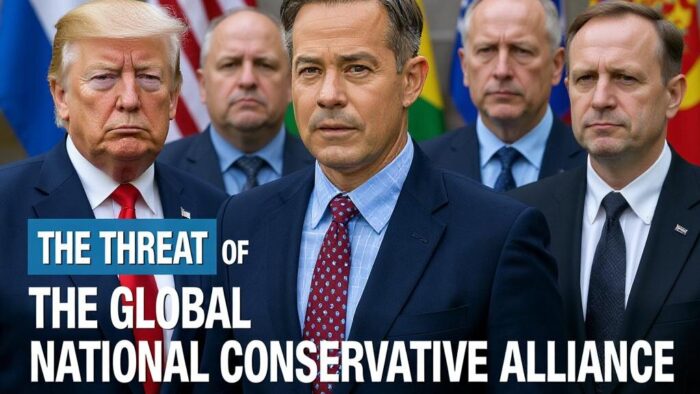The Voice of America shutdown benefits Russia China by creating opportunities for their propaganda networks to fill the void left by dismantled U.S. broadcasting services. On 26 October 2025, The New York Times reported that Republican lawmakers have warned the Trump administration that ceasing federally funded news operations is ceding ground to adversarial propaganda networks moving aggressively into the vacuum. The article begins:
For nearly two years, Voice of America, a federal news agency dedicated to projecting American values around the world, provided intensive Persian-language coverage of Israel’s war with Hamas. The service regularly reached viewers inside Iran, Hamas’s state sponsor, with the kind of reporting and expert analysis that Tehran typically suppresses. But Iranians who tuned to V.O.A. in June to learn about Israel’s attack on their country got something different: a two-hour live broadcast of the U.S. military procession in Washington that the Trump administration held to celebrate the 250th anniversary of the American army. “U.S. President Donald Trump has invited Americans to participate in this once-in-a-lifetime celebration that is free to the public,” an anchor declared in Persian. It was a striking moment for the storied news agency, which was founded in 1942 to fight Nazi propaganda and has won dozens of journalism awards for reporting around the world — but has been targeted for destruction by President Trump.
Read more: https://www.nytimes.com/2025/10/26/us/politics/under-trump-voice-of-america-is-down-but-not-out.html
Key Points
- Republican lawmakers warn that eliminating federally funded news groups without a robust replacement is reckless and shortsighted as it cedes ground to adversarial propaganda.
- Russian and Chinese propaganda networks have moved aggressively to fill the vacuum created by the shutdown of Voice of America and other U.S. broadcasting services.
- Voice of America previously broadcast in 49 languages to 360 million people weekly, while three other federally funded news groups collectively reached around 150 million people weekly.
- Representative Young Kim stated that the news organizations provide credible local language reporting that builds trust with audiences in regions targeted by Russian and Chinese influence operations.
Trump Administration Dismantles International Broadcasting as Russia and China Expand Foreign Influence Operations
The Trump administration’s March 2025 executive order dismantled U.S. international broadcasting operations, placing over 1,300 Voice of America journalists on administrative leave and terminating grants to Radio Free Asia and Radio Free Europe/Radio Liberty. The action halted broadcasts that had served audiences in countries with restricted press freedom for decades, gutting democracy promotion agencies and eliminating the U.S. Agency for Global Media’s funding. RT’s editor-in-chief celebrated the move as an “awesome decision,” while former Chinese state media editor Hu Xijin called the paralysis “really gratifying” and hoped it would prove “irreversible.”
The dismantling enabled unprecedented expansion by authoritarian media networks. Russia’s Sputnik opened new offices in Ethiopia with plans for South Africa and Tanzania, while RT launched bureaus in Algeria and announced an India office. Turkey’s TRT started broadcasting in Somalia as part of President Erdogan’s “Century of Turkey” vision. Beyond visible operations, Russia dramatically increased influence spending, with Rossotrudnichestvo expanding its budget from $77 million to $1.5 billion annually to capitalize on USAID’s dismantling. Russian training programs for African journalists dismissed Ukrainian civilian massacres and Syrian chemical weapons attacks as “fake news.”
China strategically shifted from government messaging to amplifying social media influencers and private entrepreneurs, then using state media to boost their content globally. This approach proved effective in Africa and Southeast Asia, where U.S. broadcasters had provided counternarratives to extremist groups. China Radio International took over Radio Australia’s Pacific frequencies, while China Media Group expanded content delivery to more than 130 countries in 44 languages, with over $6.6 billion invested in global media outlets.
The European Union responded with $6.2 million in emergency support for Radio Free Europe, while Britain created a soft-power council to address America’s abandoned communications role. Federal judges issued preliminary injunctions blocking some actions, but legal challenges faced appellate setbacks. The vacuum continues expanding as Russia supplies history textbooks justifying Ukraine’s invasion to schools worldwide while training foreign journalists at RT and Sputnik.
External References:
— America’s rivals celebrated as Trump set out to dismantle its global influence — The New York Times
— What is Voice of America and why Trump is dismantling the broadcaster — PBS NewsHour
— As Trump silences Voice of America, Russia and China seize the opportunity to reshape Africa’s news ecosystem — Nieman Journalism Lab
Disclaimer: The Global Influence Operations Report (GIOR) utilizes AI throughout the posting process, including the generation of summaries for news items, introductions, key points, and, often, the “context” section. We recommend verifying all information before use. Additionally, all images are generated using AI and are intended solely for illustrative purposes. While they represent the events or individuals discussed, they should not be interpreted as real-world photography.










